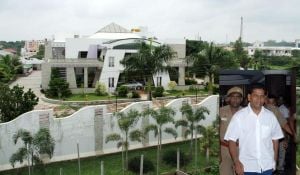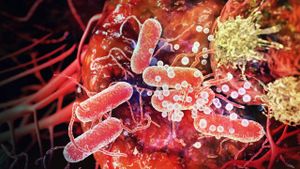French President Emmanuel Macron's recent visit to Argentina turned heads, especially concerning the sensitive discussions surrounding the EU-Mercosur trade deal. During his meeting with Argentina's President Javier Milei in Buenos Aires, Macron didn't hold back his criticism of the agreement, which has been touted for years as potentially beneficial for both the European Union (EU) and Mercosur, the South American trading bloc.
Macron, seeking to defend the interests of European farmers, characterized the trade pact as particularly negative for France’s agricultural sector. He firmly positioned France against the expected influx of cheap agricultural imports, particularly beef, from South America, which he argued would undermine local farming practices. "I will say this simply, we cannot ask our farmers in Europe to change their practices, to not use certain products and develop quality farming and, at the same time, open our markets to massive imports,” he stated during the encounter.
Macron’s visit came at a pivotal moment, just days before the G20 summit, where global leaders would gather to discuss pressing international issues. Amid heightened tensions surrounding the trade deal, Macron’s stance reflects widespread concerns among French farmers, many of whom have threatened protests if the deal proceeds. Farmers across France have engaged in disruptive demonstrations, blocking roads and calling for stronger government action to protect their interests.
The backdrop of this political discourse is Milei’s controversial presidency, which has raised eyebrows not only due to his economic policies but also due to his positioning on international climate agreements. Just days prior to Macron's visit, Milei had pulled Argentina out of the UN climate talks, stirring fears about the country’s commitment to environmental initiatives.
While Macron and Milei did agree on some shared views, their discussions revealed fundamental differences. Milei expressed dissatisfaction with the deal, indicating his desire for more favorable terms for Argentina. Macron, on the other hand, appeared isolated, actively seeking allies within the EU who share his concerns about the potential impacts of the trade agreement. The French leader's objectives during this visit were clear: to persuade Milei to support the international consensus on pressing global issues, including climate change, which seemed to hang heavily over their discussions.
The EU-Mercosur trade deal, which has been under negotiation for over two decades, aims to create one of the world’s largest free trade zones. EU officials have been pushing to finalize the agreement by year’s end, aware of the significant economic impact it could have across continents. Macron's concerted effort to rally opposition against the deal, particularly from farmers’ unions and like-minded EU member states, is indicative of the heightened stakes involved.
Macron’s approach during his trip has also been symbolic, as he paid tribute to victims of Argentina’s dictatorship, emphasizing the importance of human rights during today's political climate. His visit to the church associated with the resistance movement against the government's state terrorism of the 1970s and 1980s served as both acknowledgment of past injustices and criticism toward Milei’s climate denialism, raising questions about Milei's commitment to international human rights standards.
Macron noted, "While we may not always agree on every issue, it is still important to engage as world leaders to work toward common goals, particularly as we approach the G20 summit." His comments come at a time when global cooperation seems increasingly fragile, and allyship uncertain. Despite the differences on trade and climate responsibilities, there remains hope for dialogue, especially with Milei's continuing alterations to Argentina's policy directions.
Milei, who has expressed admiration for US political figures like Donald Trump, appears to be aligning Argentina's foreign policy with nationalistic sentiments, often challenging international norms to prioritize domestic interests. This political alignment instead complicates Argentina’s relations not only with traditional partners but also impacts their market dynamics, especially within the intricacies of trade deals like the EU-Mercosur pact.
The stakes are high as Macron's administration presses on with its campaign to solidify support against the deal, knowing the economic undercurrents on both sides of the Atlantic. The French president's visit marks more than just bilateral talks; it's emblematic of the larger struggles within Europe to balance local agricultural needs against global trade ambitions. France's focus on maintaining sustainability within agricultural practices stands as a stark reminder of the nuances and interconnectedness of global trade policies.
Now, as Macron prepares to attend the G20 summit alongside Milei, all eyes will remain attentively fixed on how these discussions might finally yield. The question remains: Can Macron’s resistance shift the tide of favor, or will the long-awaited trade pact push through, fundamentally altering agricultural landscapes on either side of the Atlantic?



